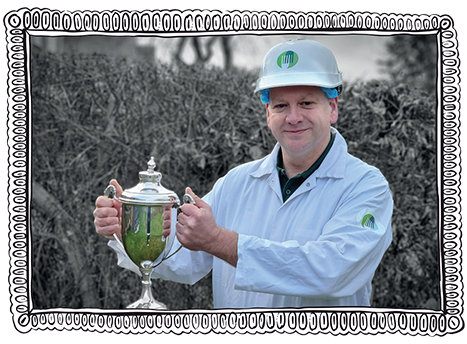Stephen Holden, meat hygiene inspector, Food Standards Agency, Essex
When and why did you join the civil service?
 I started my career in 1990 with Ipswich Borough Council when local authorities were responsible for the licensing of slaughterhouses in their areas. In 1995, the government created a new Meat Hygiene Service and meat inspectors became civil servants. When the Food Standards Agency was set up in 2000 it took on this responsibility as the food regulator and I became an FSA employee.
I started my career in 1990 with Ipswich Borough Council when local authorities were responsible for the licensing of slaughterhouses in their areas. In 1995, the government created a new Meat Hygiene Service and meat inspectors became civil servants. When the Food Standards Agency was set up in 2000 it took on this responsibility as the food regulator and I became an FSA employee.
What did you do before?
I started my trade as a Saturday boy at a butcher when I was 14, earning £5 a week. The butcher had his own small slaughterhouse at the rear of his busy shop and I became friendly with the meat inspector. I would ask him questions about meat inspection, so he encouraged me to go to college. I did three years’ training at Smithfield College in London before qualifying as a Meat Hygiene Inspector (MHI).
Tell us what you do and how it helps citizens?
I ensure meat is safe to eat and that animal welfare is not compromised. Most of my time is spent on the front line in several abattoirs in Essex, starting early in the mornings or working shifts which finish late in the evenings. I often work with a team of meat inspectors to carry out Official Controls. This involves full post-mortem inspection in slaughterhouses and health marking of all animals, including poultry. Other official duties include ensuring that all meat found to be unfit for human consumption is correctly disposed of, and inspecting game meats. I carry out residue sampling of offal and meat for surveillance and do animal welfare checks. I am a member of the Animal Welfare Team, so I make unannounced visits to slaughterhouses to ensure that welfare standards are compliant with the current legislation and report any issues to an official veterinarian for further investigation. I have also just qualified as an NVQ assessor and provide peer support to new trainee MHIs to help them gain their qualification.
"As a profoundly Deaf person I realise my career path has been an amazing achievement for me. I have survived in the hearing world for over thirty years and have broken down barriers to prove that I am capable of doing the important work required to ensure all food is safe to eat"
How did your role change during the pandemic?
I spent most of my time working on the front line supporting my fellow MHIs under pressure to maintain 100% delivery and ensure that all meat was safe to eat. I often worked weekends and night shifts to cover any shortfall of staff, so it was a difficult time.
What are some of the more bizarre scenarios you’ve encountered during inspections?
I have seen so many changes over the last 30 years as an MHI. I worked during the BSE crisis in the early 1990s which resulted in the collapse of the beef industry. I also had to deal with the outbreak of foot-and-mouth disease which led to the slaughter of millions of livestock in 2001, which was a rather unpleasant experience. I have seen livestock try to make a bid for freedom. I also remember a time when I first started as an MHI and had to reject a whole sheep carcase unfit for human consumption.
What qualities does it take to be a good food inspector?
You need to be professional, trustworthy, and be able to make to make sound judgements. Being able to tolerate long hours inside the abattoir is a big must. As a profoundly Deaf person I realise my career path has been an amazing achievement for me. I have survived in the hearing world for over thirty years and have broken down barriers to prove that I am capable of doing the important work required to ensure all food is safe to eat.
This profile is part of a series looking at the huge diversity of people and roles that make up the modern civil service. Read more here